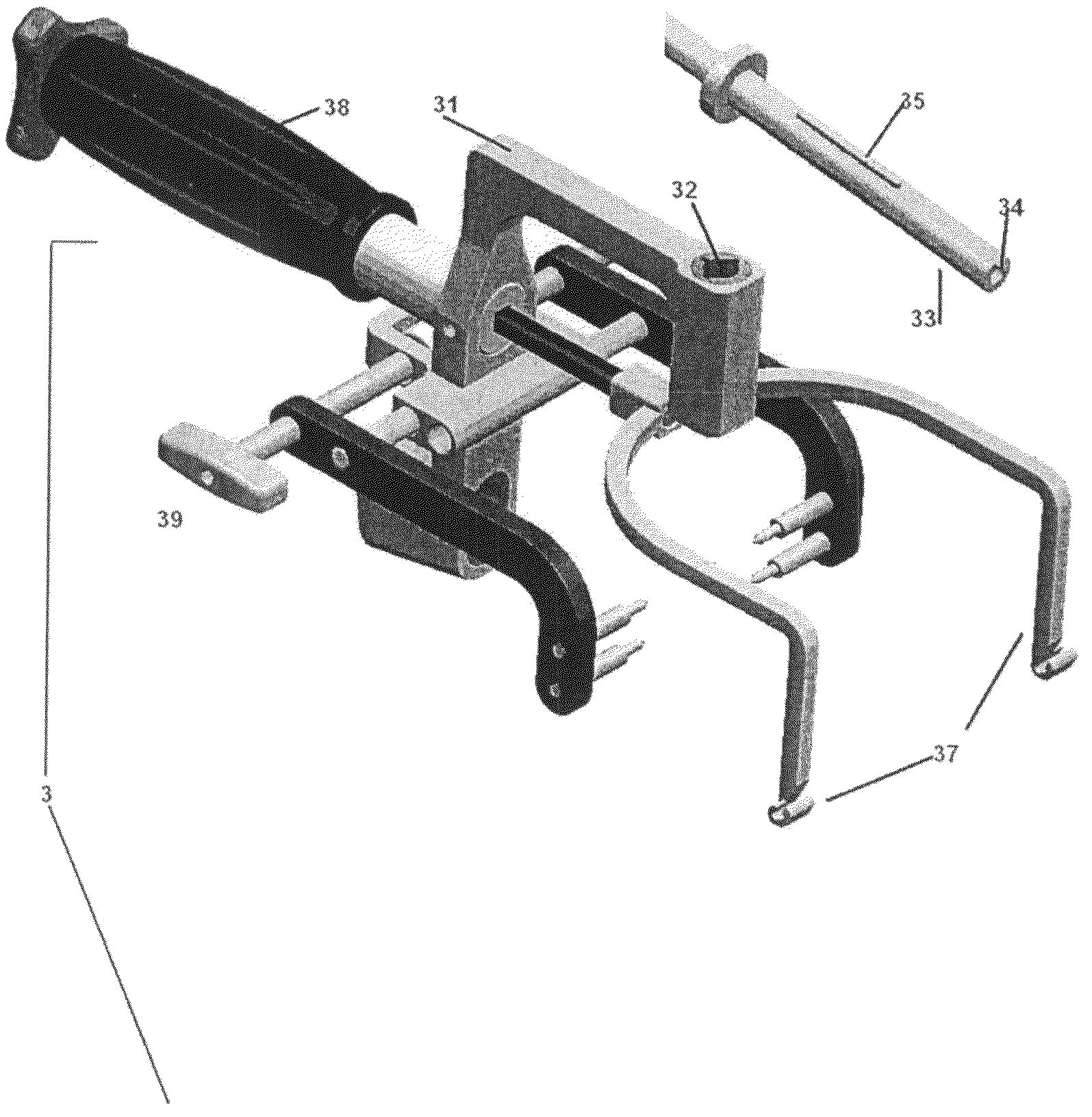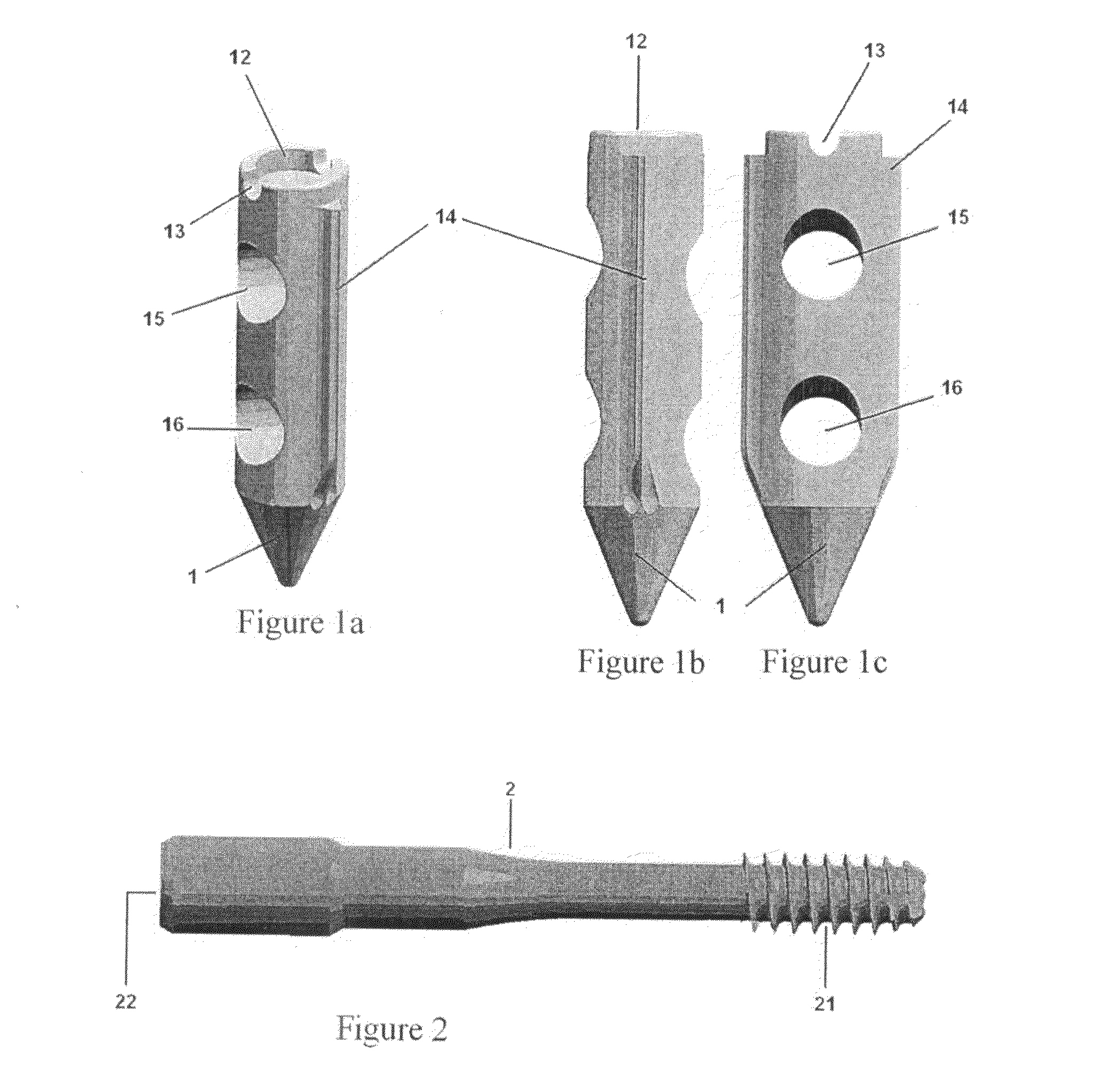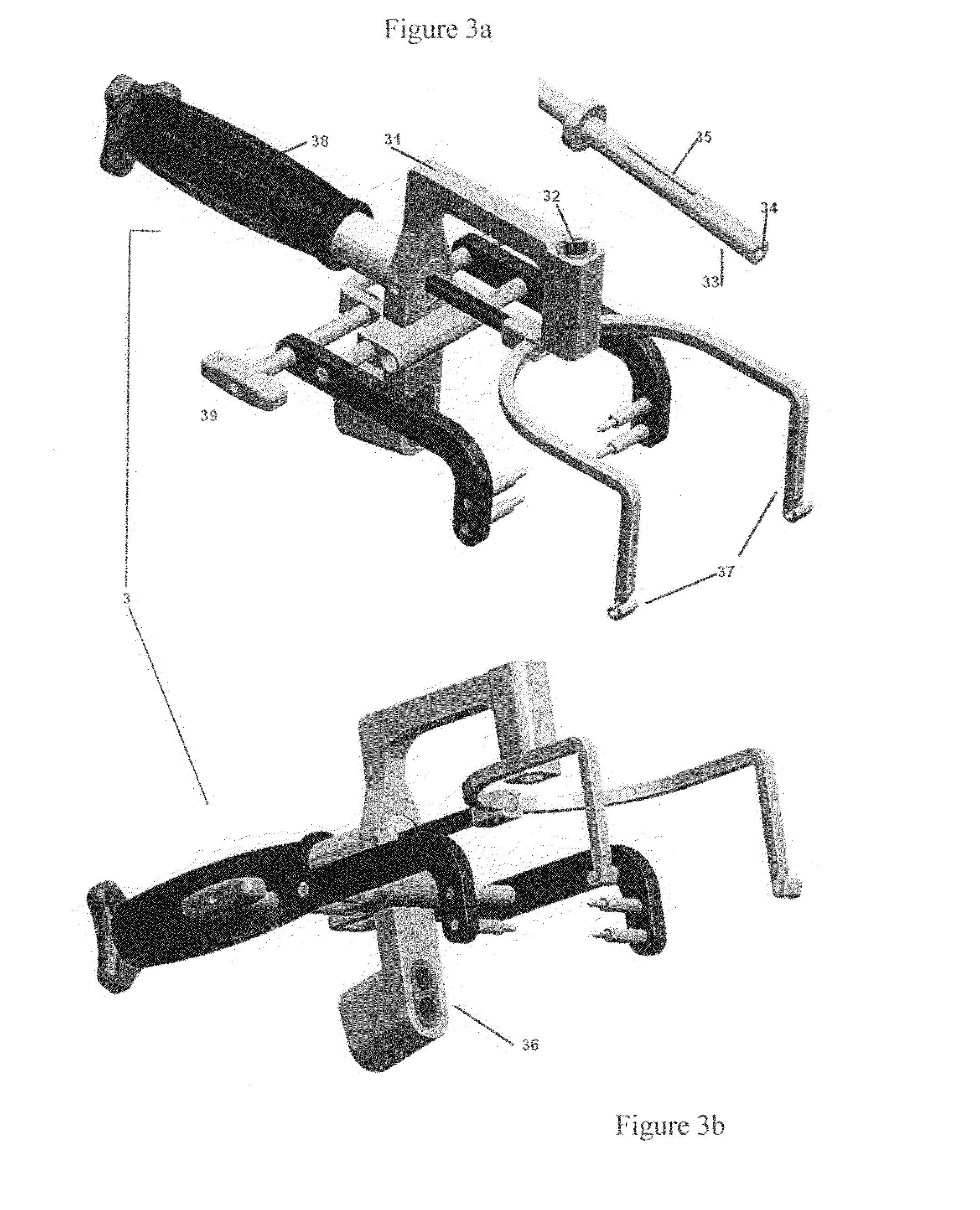Locking nail system for arthrodesis reconstruction in calcaneus fractures
a technology for arthrodesis and fractures, applied in the field of locking nail systems for arthrodesis reconstruction of calcaneus fractures, can solve the problems of limiting the securing of the lower screw, nailing into the bone, and the majority of poor long-term results of current treatment of calcaneus fractures, so as to increase the rigidity and resistance to loads, prevent the system from slipping, and increase the rigidity and resistance. effect of load
- Summary
- Abstract
- Description
- Claims
- Application Information
AI Technical Summary
Benefits of technology
Problems solved by technology
Method used
Image
Examples
Embodiment Construction
[0022]As is apparent from FIGS. 1-5, the locking nail system for arthrodesis reconstruction in calcaneus fractures utilizes the following components: a nail 1, two screws 2, and a calcaneus-talar guide 3. The system also utilizes various devices typically used in arthrodesis reconstruction in calcaneus fractures such as guide tubes, a bit, a depth gauge, a cannulated screwdriver, a diapason impactor, a bit with limiter, and reference guide-pin.
[0023]As can be seen in FIGS. 1a-1c, the nail 1 is a generally cylindrical geometrical member having a tapered point end which facilitates insertion, and preferably made of metal. The other end of the nail 1 is generally blunt and includes a threaded hole 12 and a groove 13 in order to incorporate an insertion guide 33 (see FIG. 3a). The nail 1 also includes two lateral fins 14 which are generally oppositely arranged. The fins 14 function to stabilise the implant and prevent it from rotating. The nail 1 has two through holes 15 and 16 that are...
PUM
 Login to View More
Login to View More Abstract
Description
Claims
Application Information
 Login to View More
Login to View More - R&D
- Intellectual Property
- Life Sciences
- Materials
- Tech Scout
- Unparalleled Data Quality
- Higher Quality Content
- 60% Fewer Hallucinations
Browse by: Latest US Patents, China's latest patents, Technical Efficacy Thesaurus, Application Domain, Technology Topic, Popular Technical Reports.
© 2025 PatSnap. All rights reserved.Legal|Privacy policy|Modern Slavery Act Transparency Statement|Sitemap|About US| Contact US: help@patsnap.com



